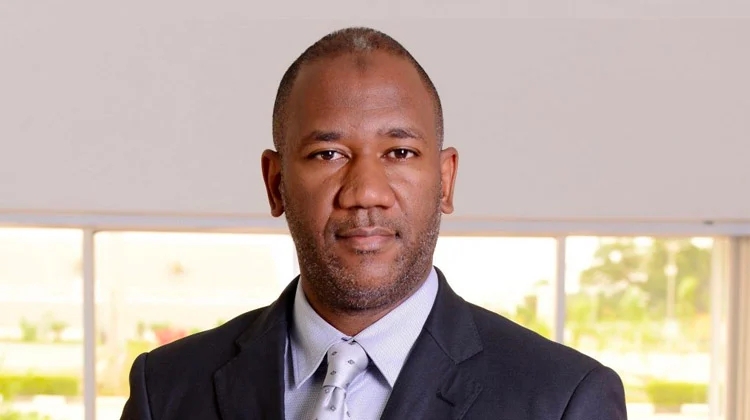Emeka Emetarom is the Co-founder and Chief Executive Officer of Qore.
The banking-as-a-service platform was recently carved out of Appzone Limited to provide the technology for digitizing banks across Africa.
In this interview with Nairametrics, he walks us through developments in the company and some of the recent happenings in Nigeria’s economy.
Enjoy the conversation.
NAIRAMETRICS: What is Qore? How is it different from other products already in the market?
Emeka Emetarom: Qore is a banking-as-a-service platform business that we are carving out of the Appzone group. Formerly we had 5 business divisions and so we consolidated four of them – our core banking-as-a-service platform, lending automation, instant card issuance and merchants’ services business lines – into this banking-as-a-service platform carved out as Qore.
NAIRAMETRICS: How would you describe the financial services sector in the last five years?
Emeka Emetarom: A lot of neo-banks and digital banks have come into the space and it’s been exciting. Technology allows you to deliver financial services beyond the reach of the branch. With this, there’s no limit to the amount of innovation you can bring.
In the past couple of years, there’s been huge disproportionate interest from VCs in fintechs globally and Africa which has also led to a lot of start-ups coming up. So many incubation hubs bias their services towards fintechs because those are the businesses most likely to raise capital.
Most VCs are looking into fintechs, and it’s no surprise because all the other verticals still plug in, one way or another, to financial services – you can’t run a business without having to transact, without having to make payments or receive payments and so it’s like the financial services space is the bedrock of the economy, generally.
This interest from the investor community has led to a lot of new players coming in and lots of funding going into the sector. In addition to traditional banks – commercial banks and regular microfinance banks – other entities are coming on board to deliver innovative products.
There’s also something new; an embedded banking concept where typical e-commerce players are starting to see that there’s an opportunity because they already have a huge customer base. So many of these e-commerce businesses are looking to embed banking into their services to help customers create some sort of wallet or an account that helps to transact across their platforms and channels. That is also something that we’re seeing exploding.
NAIRAMETRICS: Financing in fintech has slowed down in the recent quarter. What would you say is responsible for this?
Emeka Emetarom: What tends to happen generally is that when you have an economic downturn, it makes investors more cautious. It’s not that investment is not happening, just that investors are more cautious. Two issues came together to cause the economic downturn.
Firstly, the Covid-19 pandemic kept most of the world grounded for 18 to 24 months. Many countries implemented stimulus packages; just pumping money into the economies to keep them going and to avoid a recession. I feel they may have gone overboard with that, and the whiplash effect from that has been inflation.
The way central banks rein in inflation is to increase their interest rates. But the impact of increasing interest rates is that suddenly, investors can make better returns from safe investments. For example, if you had $10 million and your money was sitting in the bank where the interest rate was essentially zero, it doesn’t make sense to keep it there.
You need to find some venture to put it in to get some return so that money goes into private equity and venture capital and so on.
But the moment the central banks decide to increase rates, all those rates start going up, and then suddenly, people would see no reason to put their $10 million in a risky investment, if they can just keep it in the bank where it will be safe and secure, and they can get good returns. So that sucked out liquidity on the one hand.
But sucking out liquidity, if not properly managed, can impact consumer spending and cause a slowdown in growth. So, investors analyzing the mid-term economic outlook would have been thinking “this is not the best time to take risks”. Nobody wants to invest just before a downturn. The best time to invest is when you are at the base when things are starting to go up because then you get a good return on your investment.
Also, it didn’t help that the Russia and Ukraine war caused other supply chain problems and just exacerbated the overall economic outlook problem. Gas prices went up and you have currency devaluations and all that. Essentially most investors are waiting till the storm blows to start investing again. I’m optimistic that this would start to happen sometime towards the end of 2023.
NAIRAMETRICS: The CBN recently raised the benchmark interest rate to 16.5%. How do you think this would impact banking activities?
Emeka Emetarom: So, well, first, it would make borrowing more expensive. Those kinds of policies are supposed to rein in inflation, and of course, Nigeria is not excluded from the global inflation issue, so it’s quite understandable that the Central Bank of Nigeria would need to increase those rates.
But while it translates to capital becoming more expensive for people who would have needed to borrow money from the bank, sometimes you must take some of these decisions to be able to benefit from the long-term positive outcome even though it causes some short-term discomfort for businesses and individuals. But all in all, I think it’s a step in the right direction.
NAIRAMETRICS: The insurance industry is slow to grow. For you, are there plans in the pipeline to change the narrative?
Emeka Emetarom: The thing is that the insurance sector is vertical and it’s adjacent to financial services in the sense that it has a lot to do with payments and money movement and quite frankly, a lot of the insurance companies now implement pseudo investment insurance products.
They have products that allow customers to pay a premium, but in a way that that premium contributes towards some sort of commitment-type savings investment that they can recoup over a period. So, it’s starting to come closer to investments and banking.
But because it’s a different vertical and the rules are different, it requires us to focus on it. We need to be able to focus. After we have made significant mileage in the banking space, we might ultimately decide that we would give focus on the insurance companies, take a look at what has been built and the additional modules and services we need to cater for from a technology perspective and then articulate a business model.
But that’s like a whole new business, right? We would get there. Again, we want to make sure we can digitize and automate all financial services industries.
Some people feel ‘our religious and cultural beliefs are the reasons the insurance space is slow…
I think it’s a poverty issue. The thing is those insurance premiums are not very much, but the issue is not being able to afford it. In Nigeria, the minimum wage is N30k. If you’re going to get a solid (regular) health insurance plan, you may have to part with 20% or 30% of your salary if you are earning a minimum wage.
But if people are earning a lot more money, insurance will be deductibles that nobody will feel much. So, once we solve the problem of disposable income, which is tied to solving the problem of poverty, people will start adopting insurance just like everywhere else in the world.




















